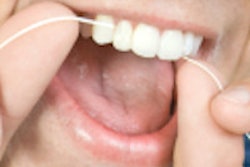
Kenneth Wright, DMD, MPH, Kaiser Permanente Northwest's executive director of dental services, has announced plans to cut periodontal hygienists who provide specialized care for patients with advanced periodontal disease from its dental care program in Oregon and Washington.
The news prompted the Oregon Federation of Nurses and Health Professionals (OFNHP), which represents Kaiser's hygienists, to demonstrate in front of Kaiser's Portland headquarters on April 24.
Working in conjunction with periodontists, the 19 specialists provided care for 20,675 patients with serious periodontitis last year, according to the OFNHP. The dental care program, which includes 113 dentists, is available in Kaiser's Northwest region, which stretches from Longview, WA, to Salem, OR, and is the only area in the country where Kaiser offers oral and medical care to its members.
“They are the worst of the worst cases.”
Nurses and Health Professionals
"They are the worst of the worst cases; it's the folks who have serious gum disease and need lots of attention," union spokeswoman Temple Lentz told DrBicuspid.com. "It's a lot more than regular cleaning, and the appointments take longer because they need special care and complicated procedures."
The periodontal hygienists earn more than general hygienists.
Kaiser decided to consolidate 19 periodontal hygienists and 125 general hygienists to "enhance service delivery for all our members," Dr. Wright said.
"We have proposed to broaden the scope of care services performed by both groups so that all of our hygienists are providing dental and periodontal hygiene services, to the fullest extent of the their schooling and licensure," according to Dr. Wright's statement that was emailed to DrBicuspid.com. "We continue to work in good faith with OFNHP to meet our members' needs while honoring the terms of the collective bargaining agreement."
The region's dental patients have increased from 190,000 in 2011 to 205,000 in 2013, according to Kaiser.
But the union warned that cutting the specialists will impact patient care and violates the union's contract.
"Patient care will undoubtedly suffer," union director Edward Burke said in a statement.
The OFNHP says it has tried to negotiate with management to show that eliminating the periodontal hygienists is a "superficial cost solution" that will cost more in the long term.
"By eliminating the specialized classification of periodontal hygienist, this successful dental program is going to take a giant leap backward in providing the consistent care Kaiser members have enjoyed in the past," the union stated.
The union said it will appeal the cuts to the highest level of arbitration because it violates their contract and puts profits over patient care.
Kaiser's Northwest dental program began in 1990 as an outgrowth of a community health center in Portland and now includes 17 dental offices.



















